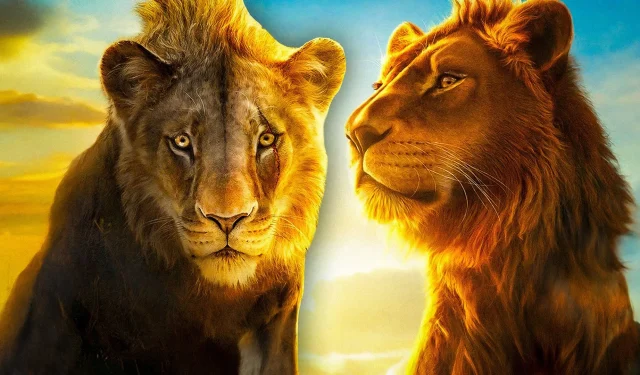
The intricate dynamic between Mufasa and Scar forms a pivotal theme in the Lion King franchise, with the recent release of Mufasa: The Lion King adding complexity to their familial bond. In the iconic 1994 animated feature, Mufasa and Scar, who were once considered siblings, find themselves in opposition over the leadership of Pride Rock. The new prequel journeys back to their youth, where Scar is introduced as Taka, and unveils the adventures they shared before Mufasa ascends to the throne. This narrative presents Scar’s jealousy, spurred by his understanding of being the heir apparent until the birth of Simba.
Mufasa: The Lion King is an innovative creation by writers Jeff Nathanson and Barry Jenkins, providing a more nuanced view of the connection between Mufasa and Scar. However, this storytelling choice challenges the long-held belief that these characters were biologically related. For decades, audiences have accepted the premise that Mufasa and Scar were brothers, forged in the context of the franchise’s established lore. With the unveiling of the prequel in 2024, it’s essential to re-evaluate how Mufasa and Taka’s relationship fits into the broader narrative of the franchise.
Mufasa & Scar: A Non-Biological Brotherhood
From Different Lineages
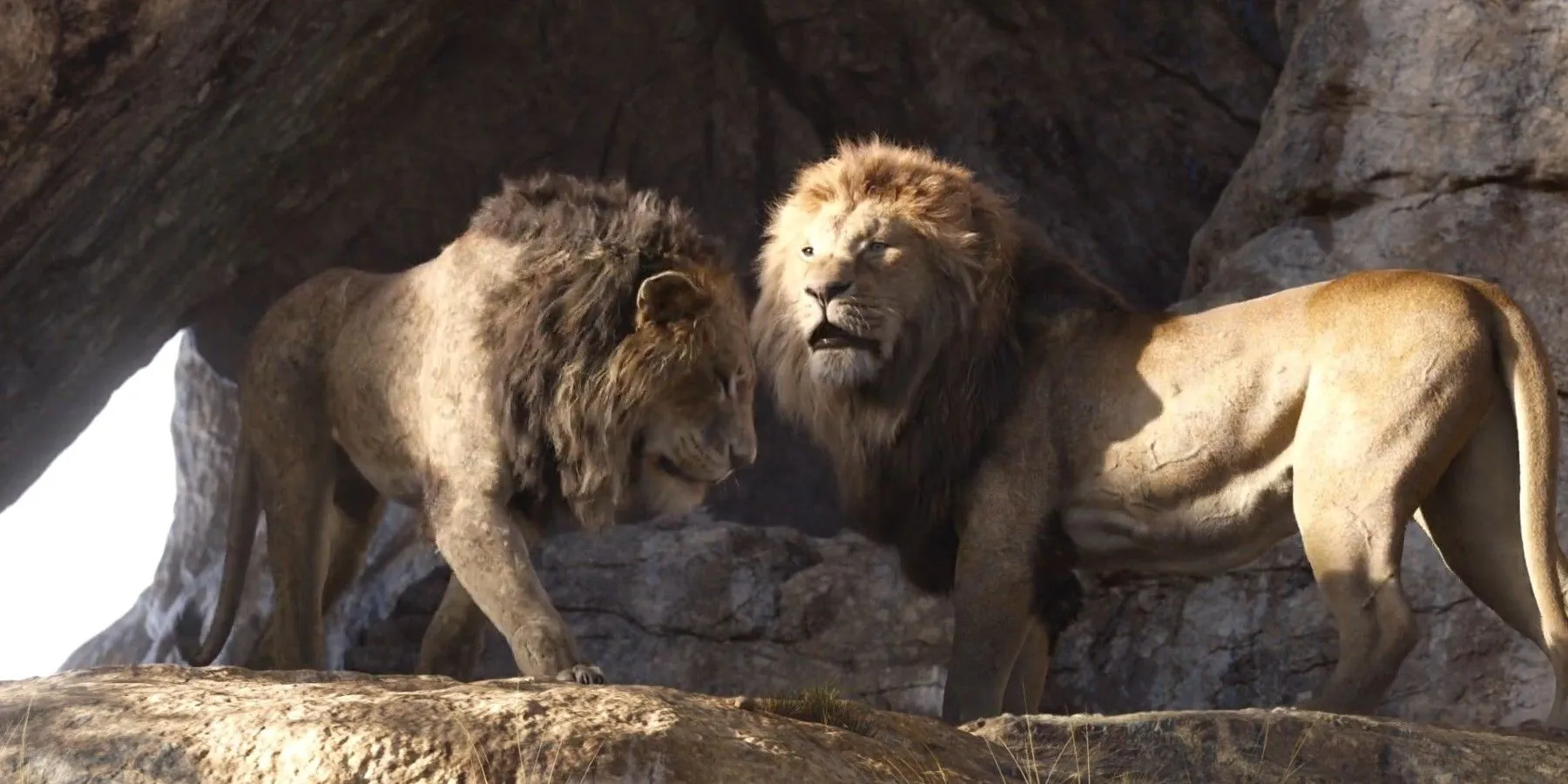
In Mufasa: The Lion King, Mufasa and Taka develop a brotherly bond despite not sharing the same bloodline. As Mufasa integrates into Obasi’s pride, the two cubs cultivate a strong friendship that transcends traditional camaraderie. They mutually regard each other as brothers, even without a genetic connection. This sentiment is beautifully captured in the song “I Always Wanted A Brother,”which portrays their shared experiences and the deepening of their relationship over time.
This profound connection is the reason Taka and Mufasa refer to themselves as siblings. Lacking biological siblings, their childhood experiences and shared upbringing foster a bond akin to that of brothers. Essentially, one could interpret that Mufasa is effectively adopted into Taka’s family, fulfilling an emotional void typically associated with sibling relationships.
Implications of the Original Lion King
Historical References to Their Blood Relationship
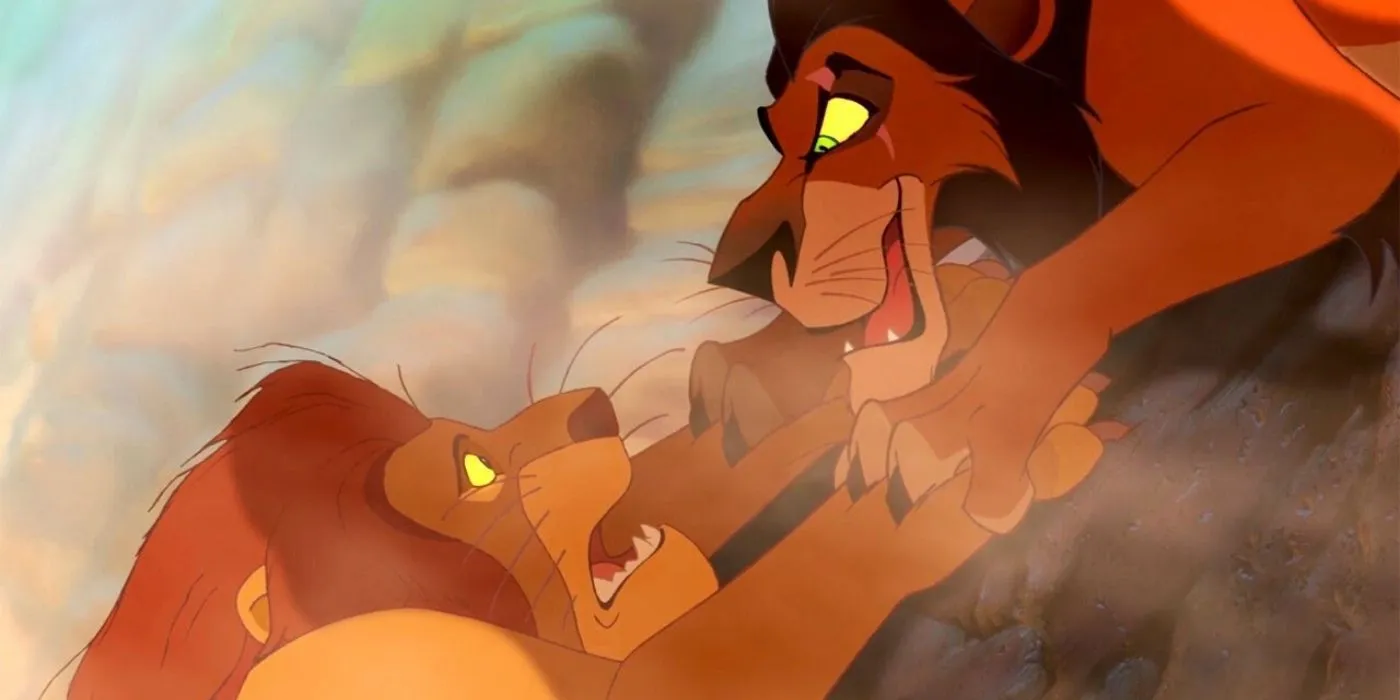
Despite the ambiguity surrounding Mufasa and Scar’s relationship in the original The Lion King, the implication of them being blood-related was strong. Throughout the film, both characters repeatedly acknowledge their bond as brothers, with Scar also identified as Simba’s uncle. At one point, Scar notes, “I’m afraid I’m at the shallow end of the gene pool,”subtly hinting at their familial connection. Zazu adds to this implication by describing Scar as “one in every family,” further establishing his relation to Mufasa.
The 2019 live-action adaptation distanced itself from this notion, altering Scar’s remark about the gene pool to suggest they are not blood relatives. However, this reinterpretation shines a different light on earlier films when viewed alongside the recent prequel. Until now, it was reasonable for audiences to assume a biological connection existed, especially given the portrayal of familial ties in Disney narratives, which are often central to character motivations.
Insights from The Original Director
Original Intentions May Have Differed
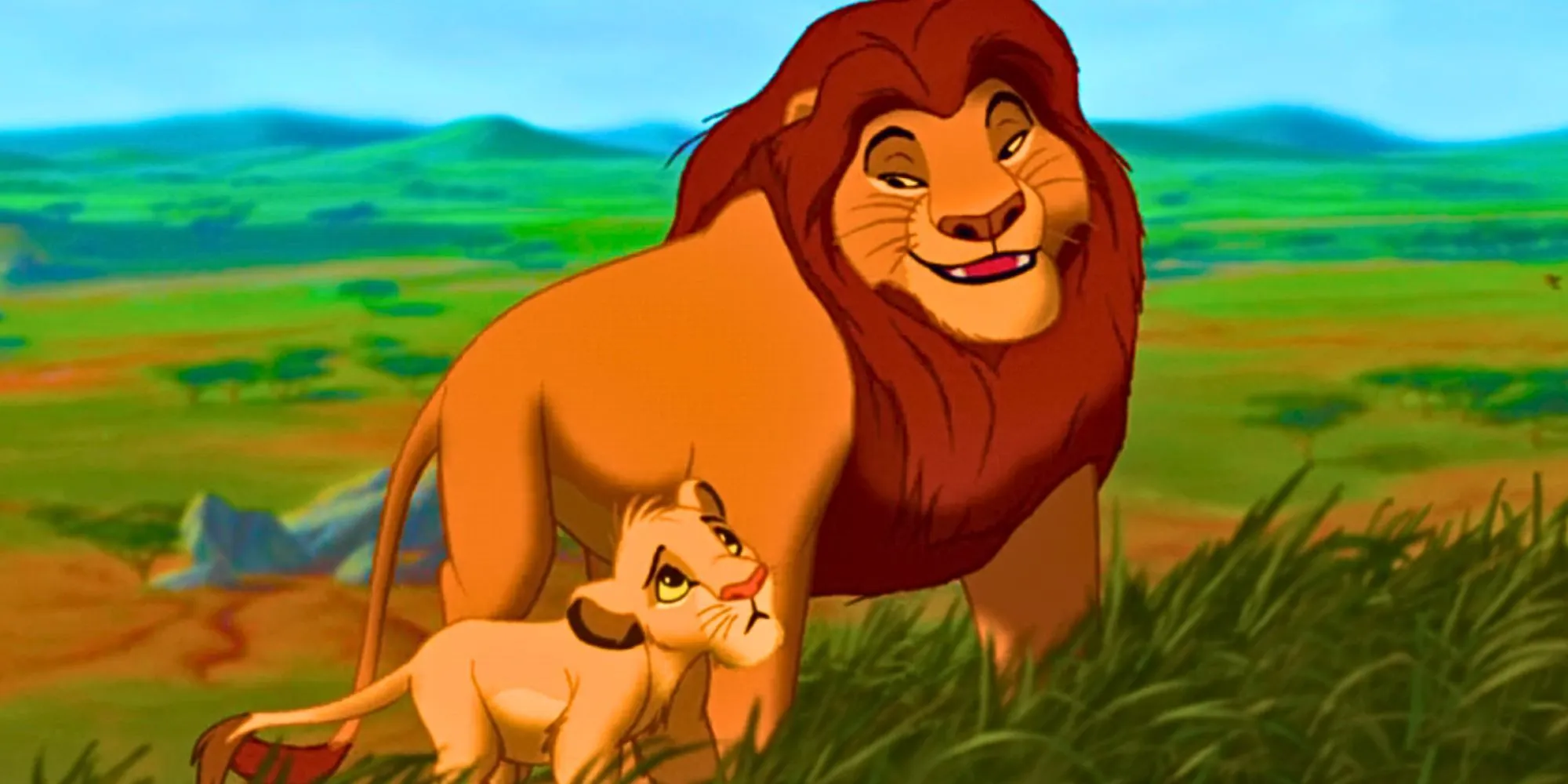
The enduring belief that Mufasa and Scar were blood relatives can be traced back to the original animated film, as even the creators did not conceive of their relationship in that manner. In a 2017 interview with Hello Giggles, producer Don Hahn and director Rob Minkoff confirmed that they did not initially regard Mufasa and Scar as biological siblings. Hahn remarked, “[While making the movie] we discussed that it was likely they would not share the same parents.” He further explained that their different characteristics suggested they could not stem from the same gene pool, aligning with natural animal behavior.
This revelation indicates that the original conceptualization didn’t explicitly intend for Mufasa and Scar to be brothers. Hence, Mufasa: The Lion King is not so much a retcon as it is a clarification, aligning the onscreen relationship with the initial intentions of the filmmakers.
Impacts of Mufasa and Scar’s Dynamic
A Fresh Perspective on The Lion King
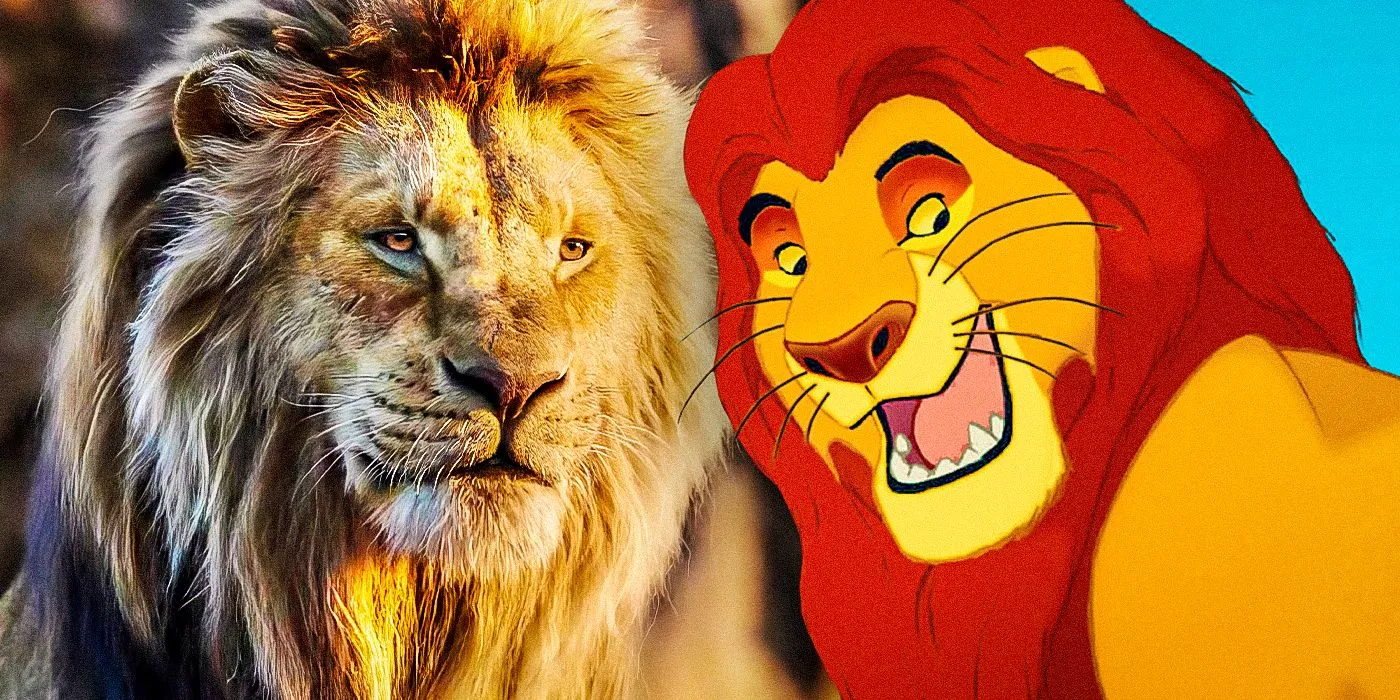
The revelation that Mufasa and Scar are not biological brothers significantly alters the framework of The Lion King, affecting both the original animated film and its live-action version. This redefinition shifts the anticipated lineage, where Simba was presumed to be the culmination of a long line of kings sharing the same bloodline. Instead, Mufasa: The Lion King positions Mufasa as a foundational king of the kingdom.
While Scar’s jealousy remains intact, the prequel provides clarity regarding his motivations. Scar, as Taka, was the rightful heir to Obashi’s leadership and would have inevitably ruled had Mufasa not taken his place. Compounding this, Scar’s interest in Sarabi, who ultimately becomes Mufasa’s mate, contributes to his motivations for rivalry. Understandably, this added context deepens Scar’s character arc and perspectives on his actions in The Lion King.
In conclusion, while the distinct relationship of Mufasa and Scar does reshape the established narrative, Mufasa: The Lion King successfully adds depth without undermining the original story’s significance.




Leave a Reply